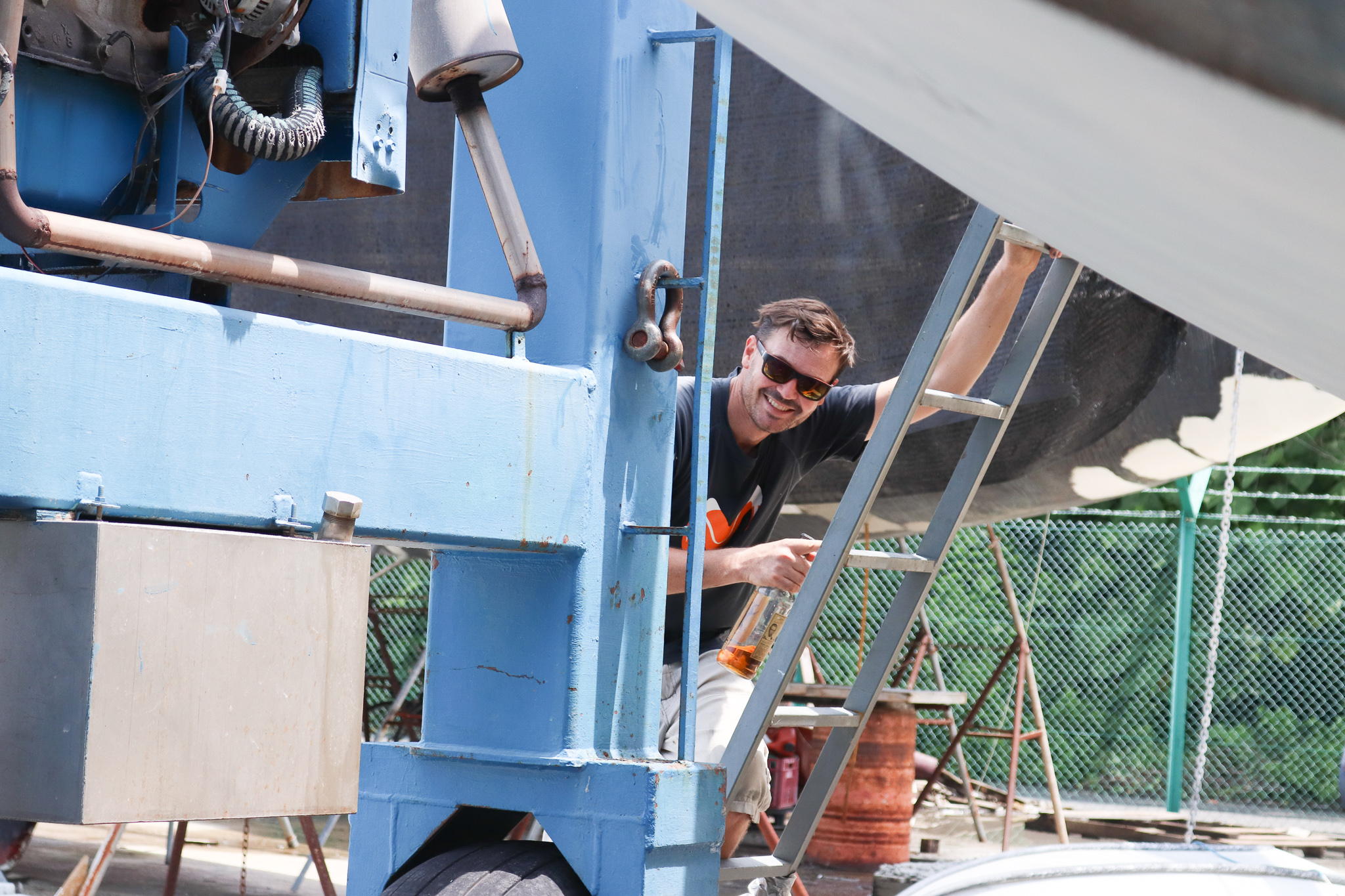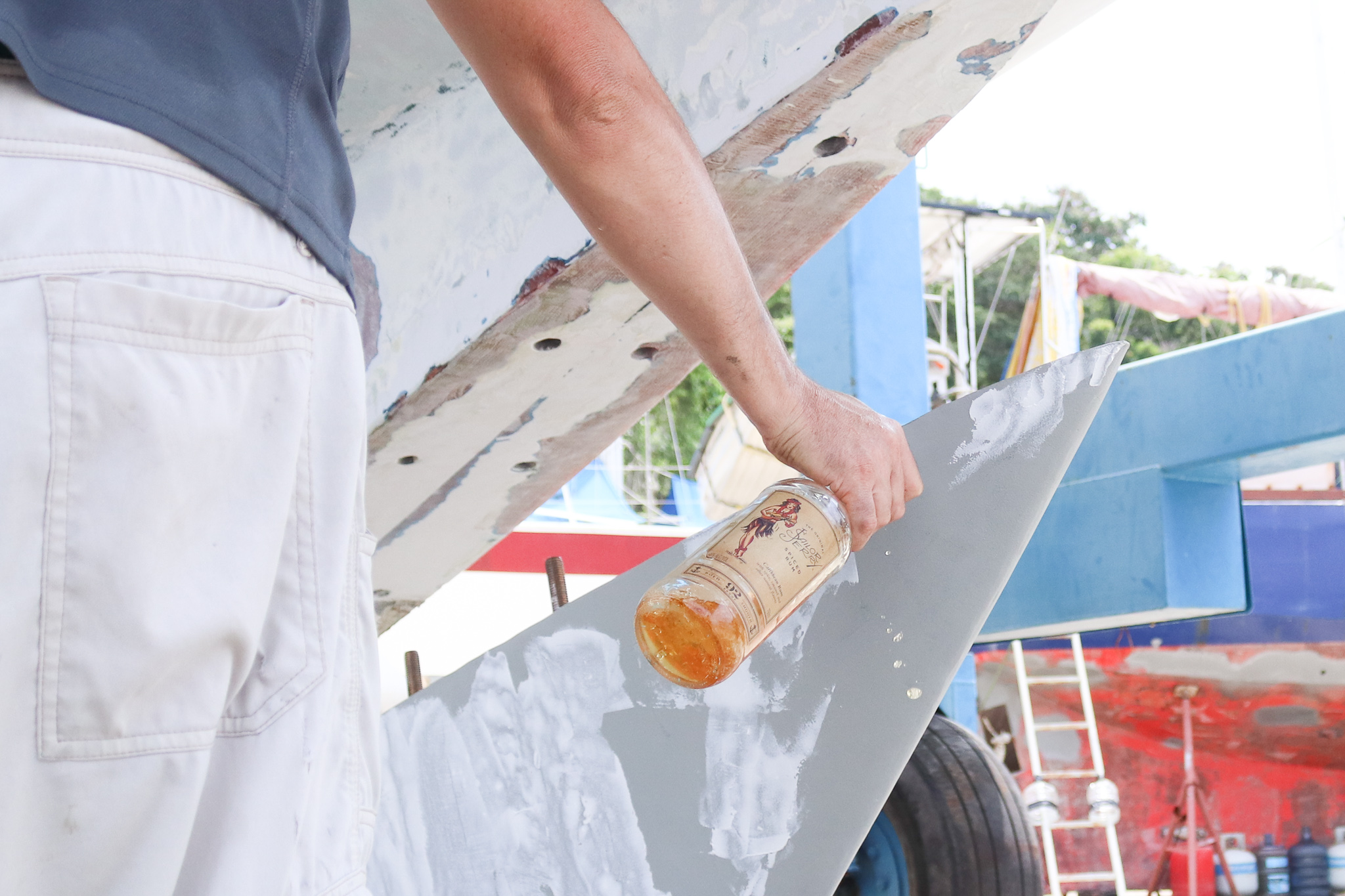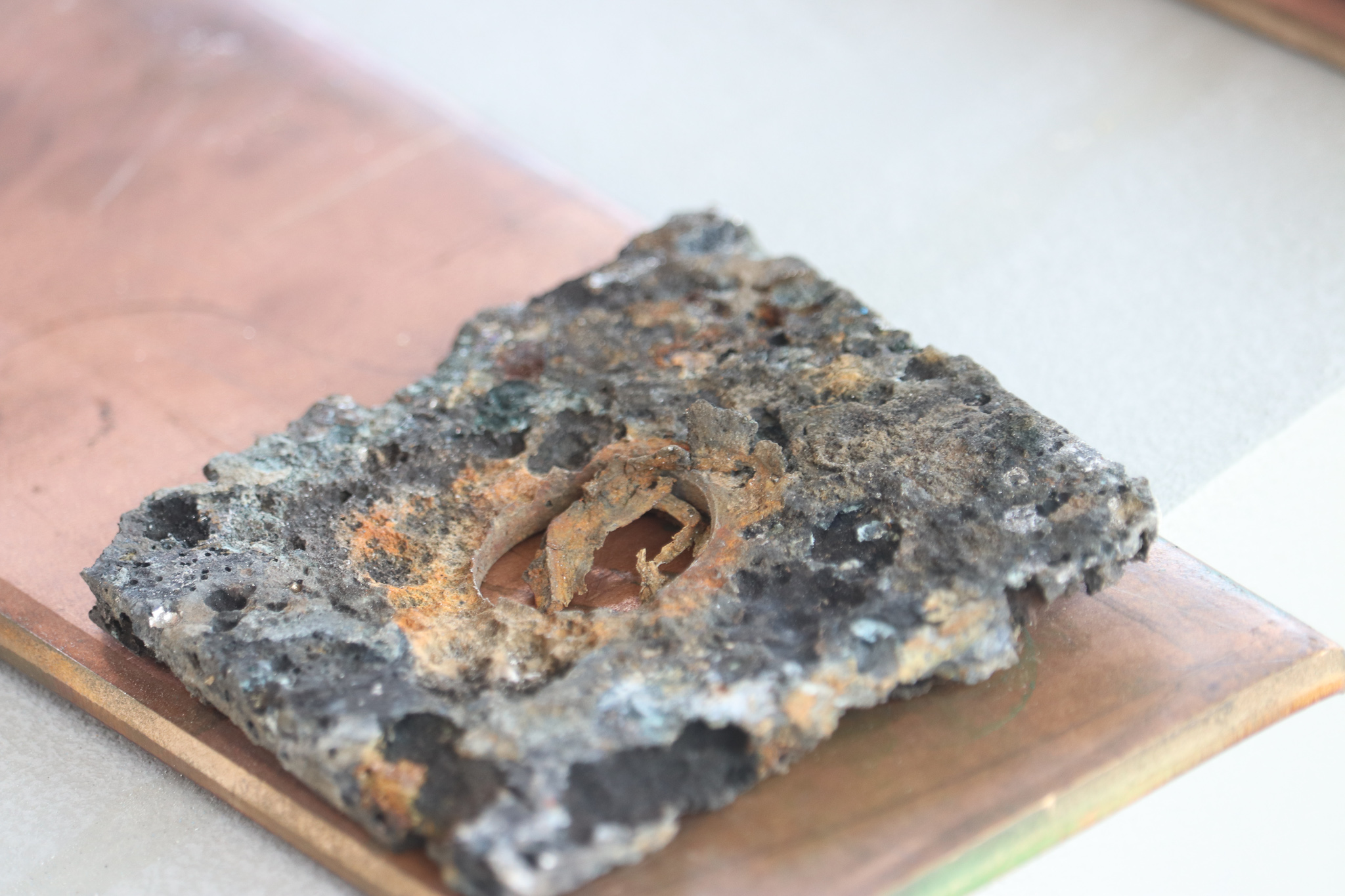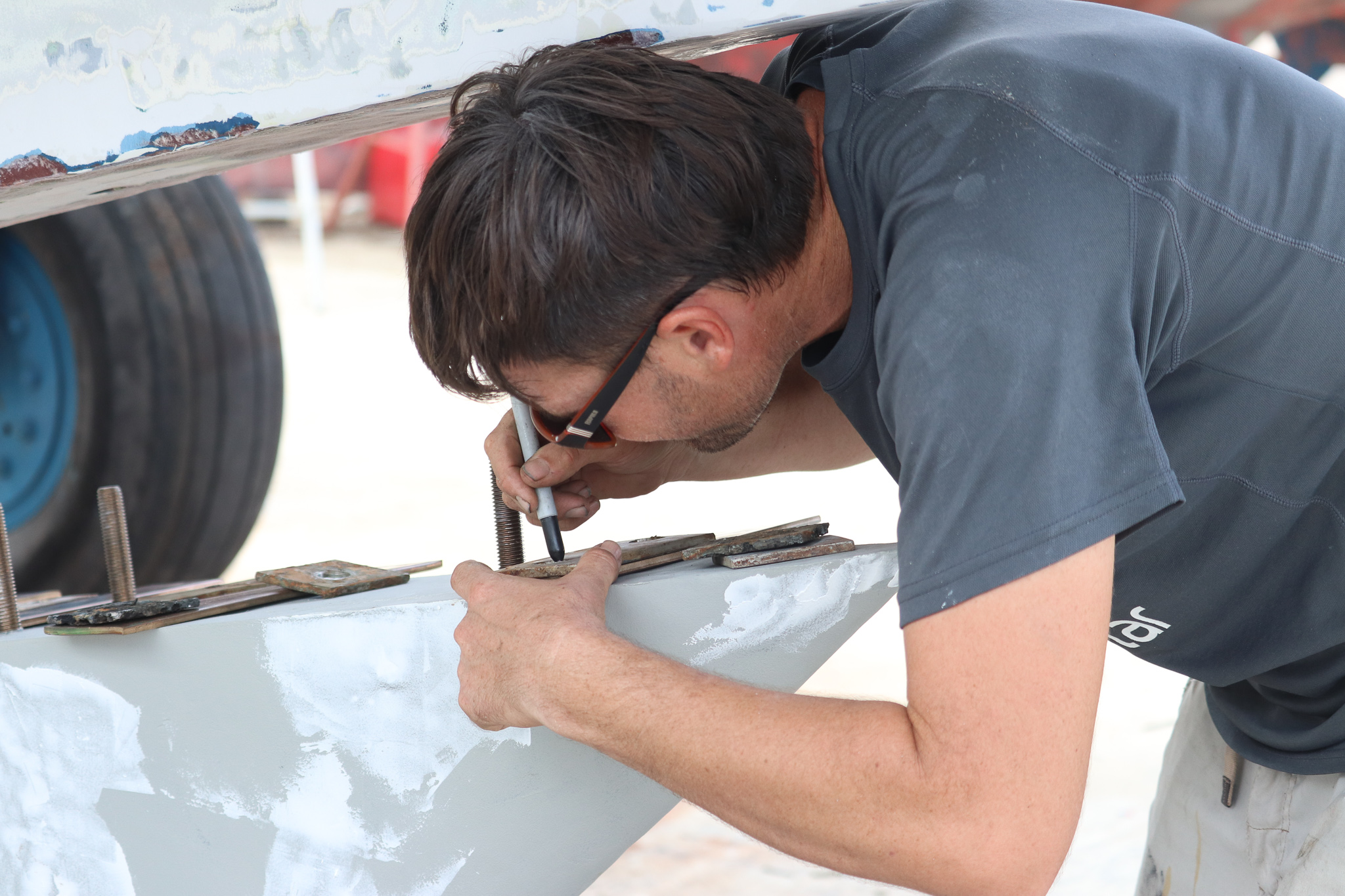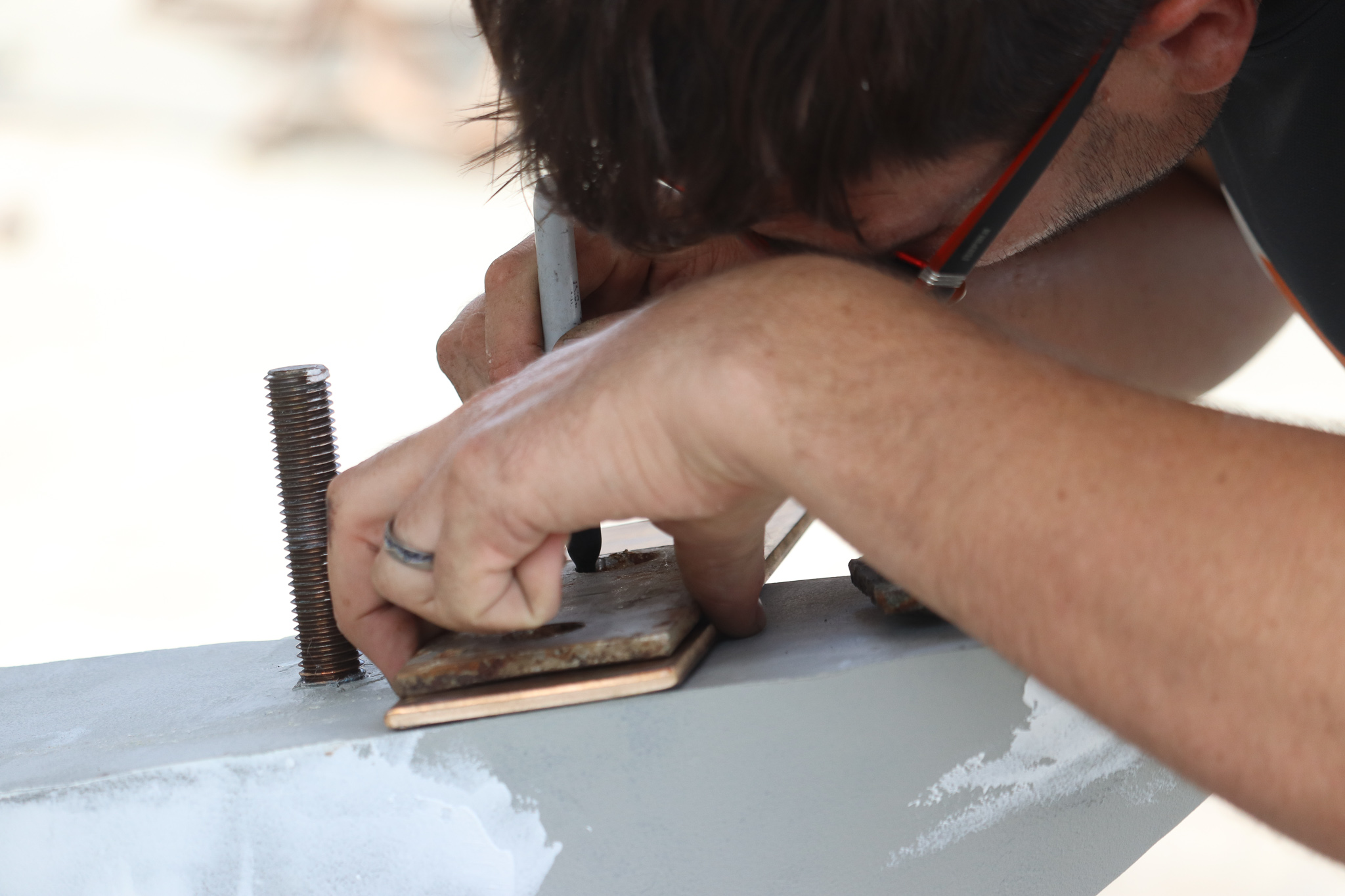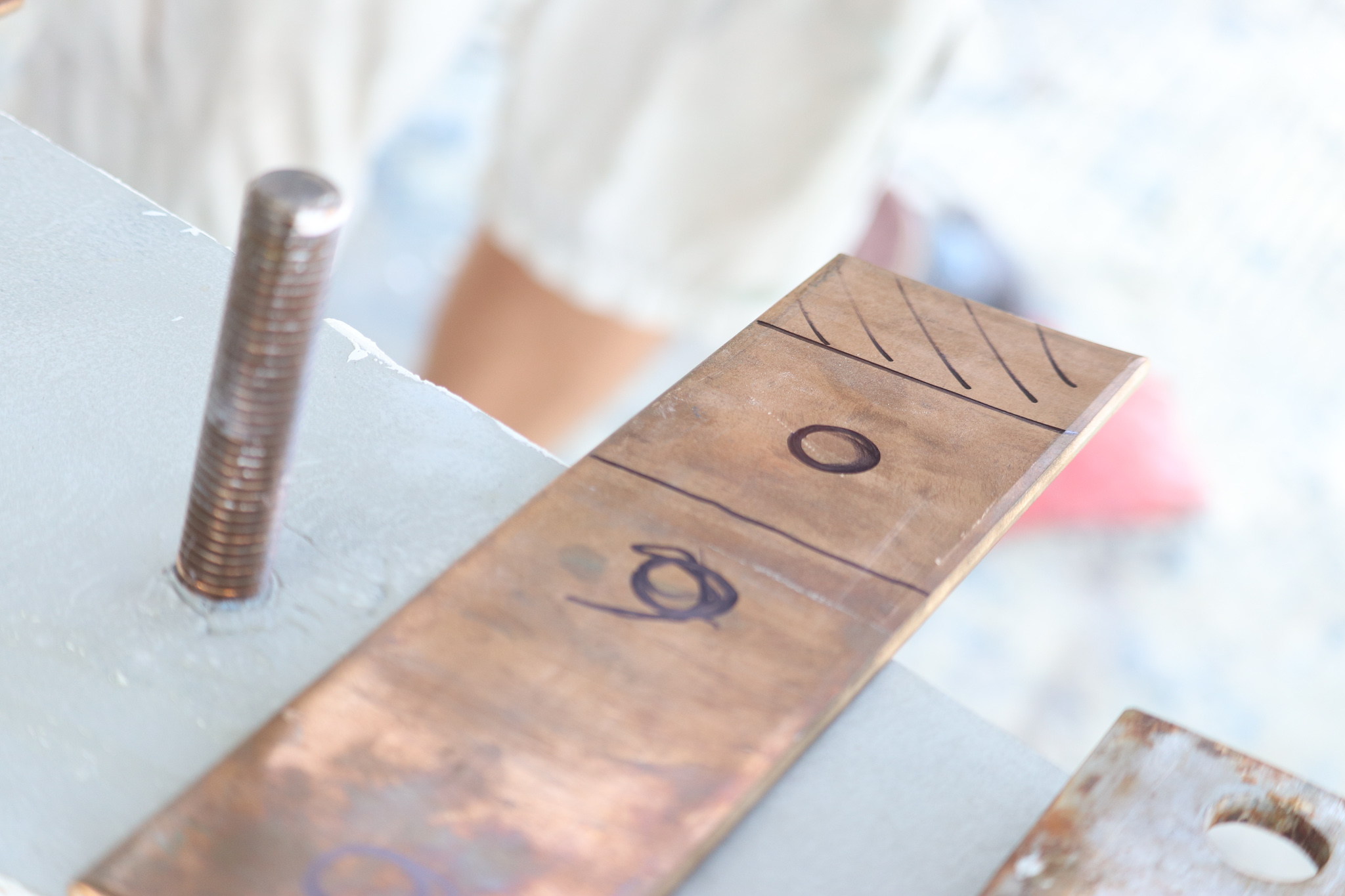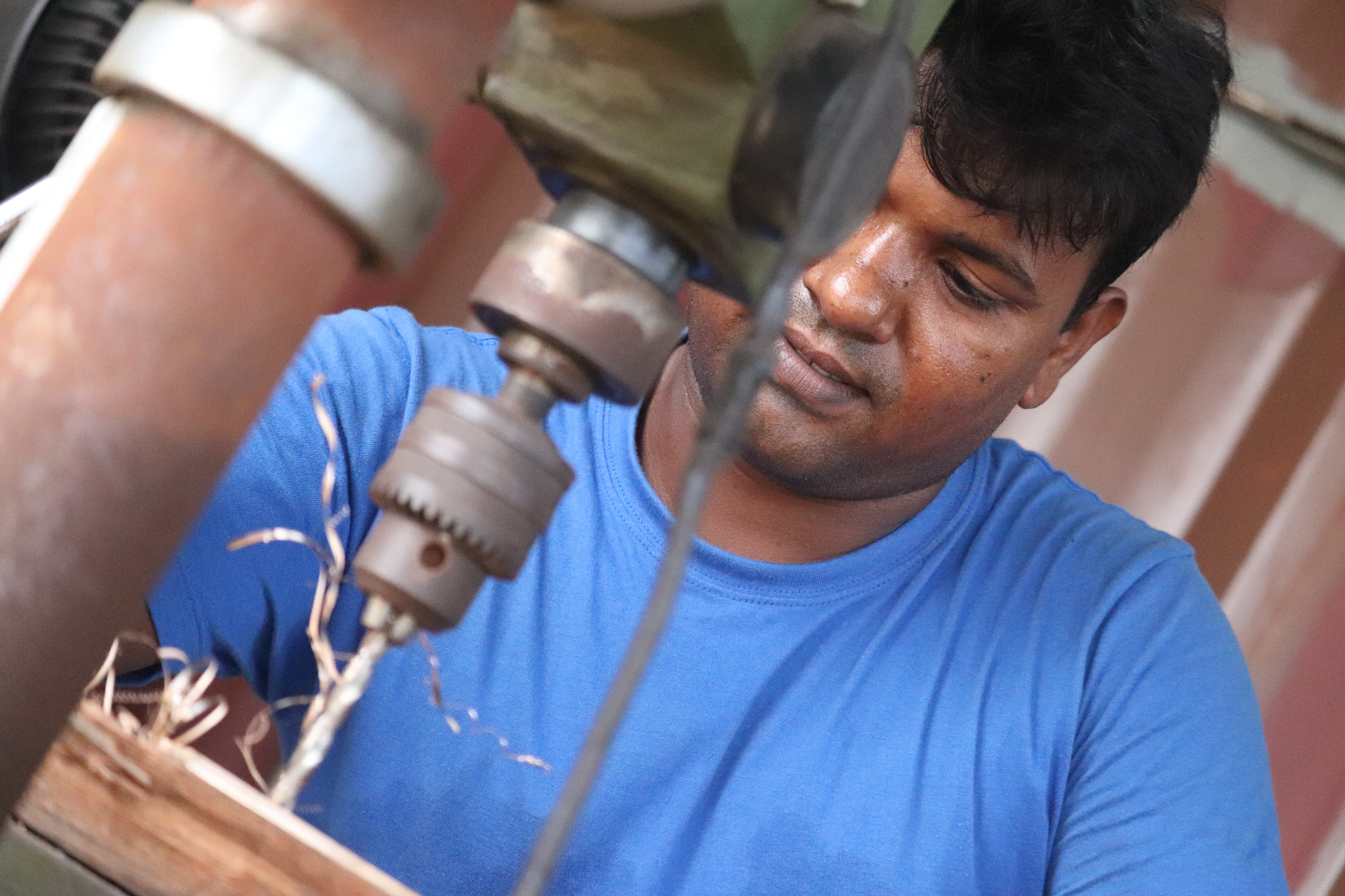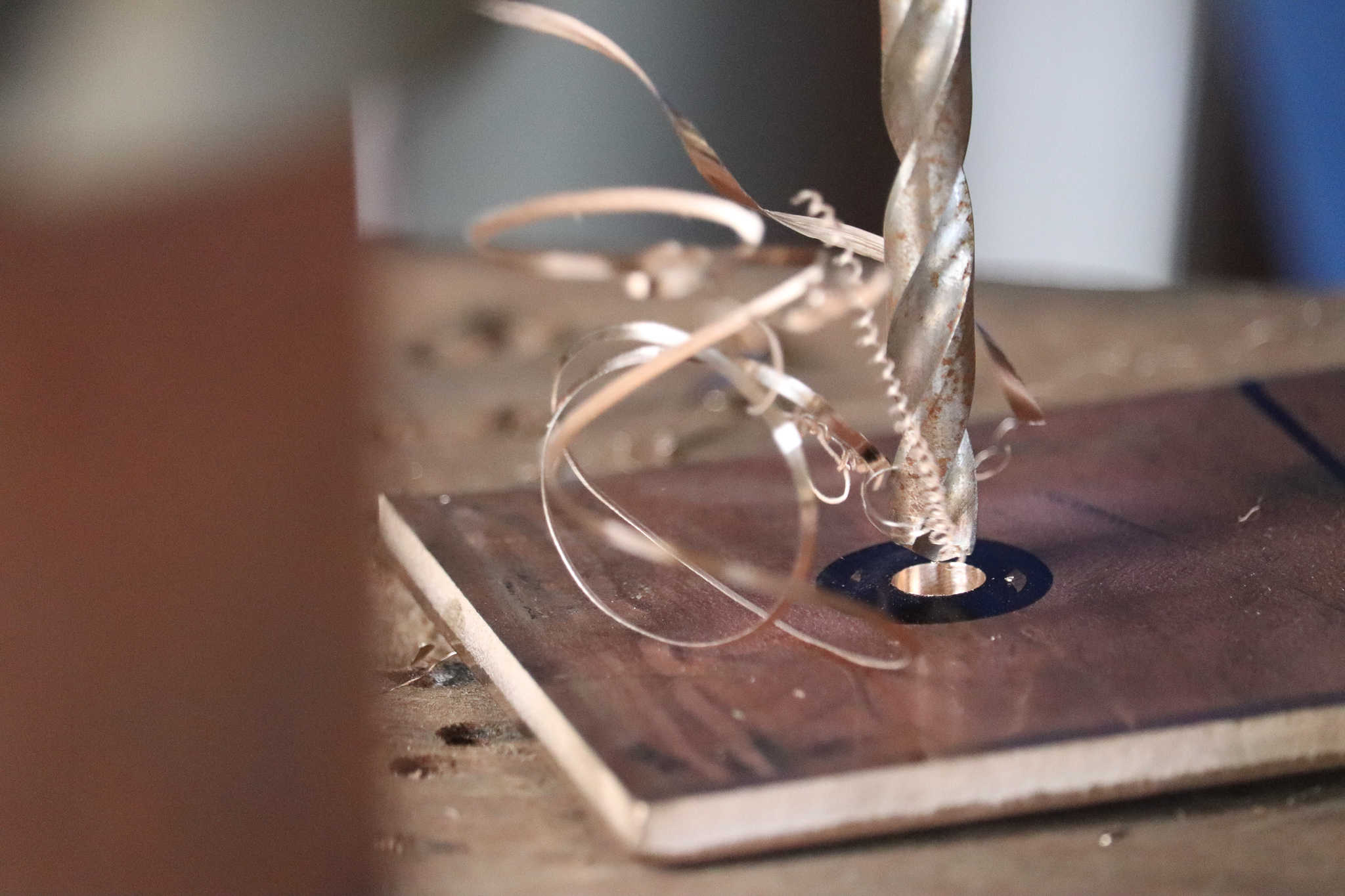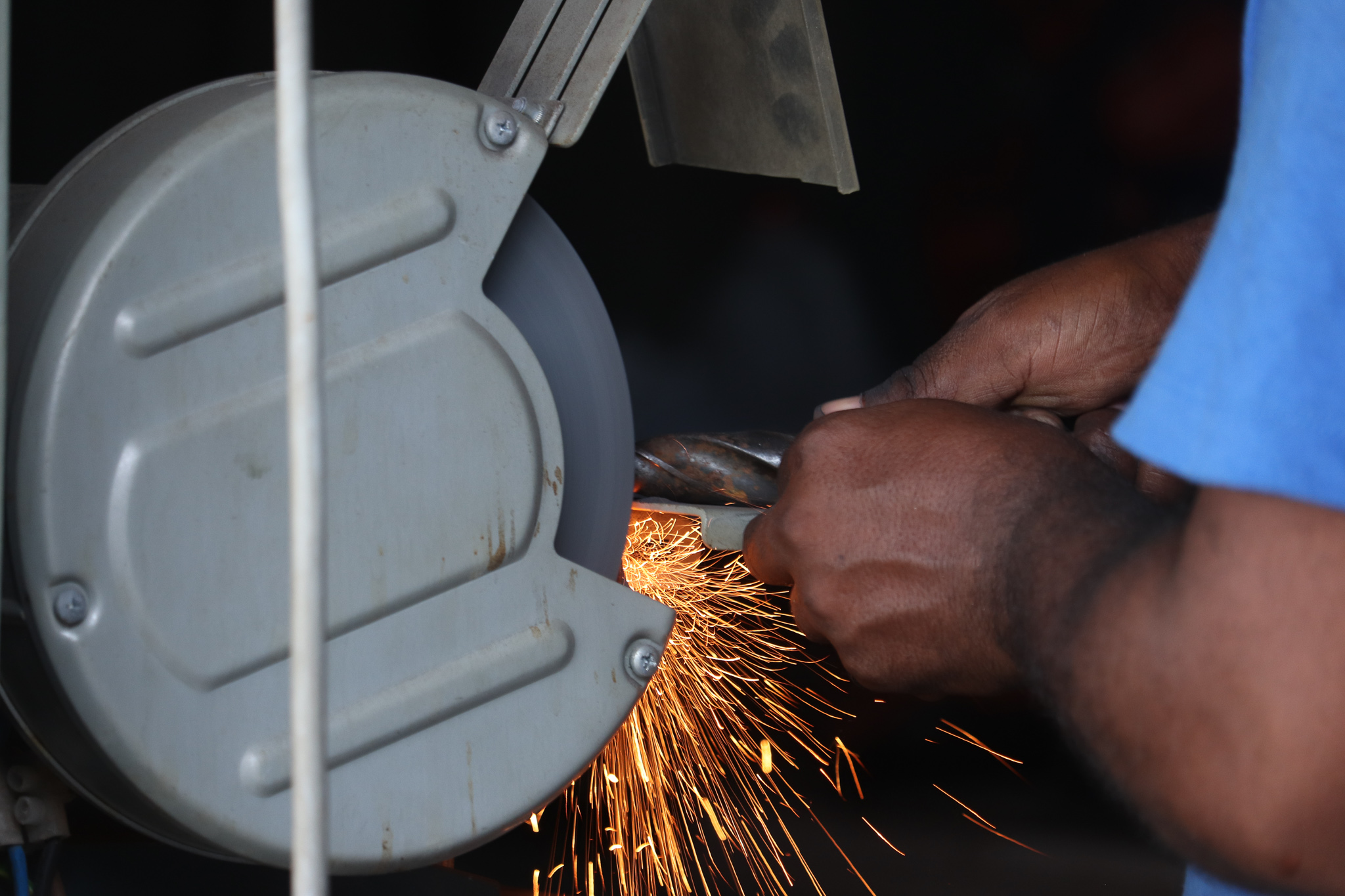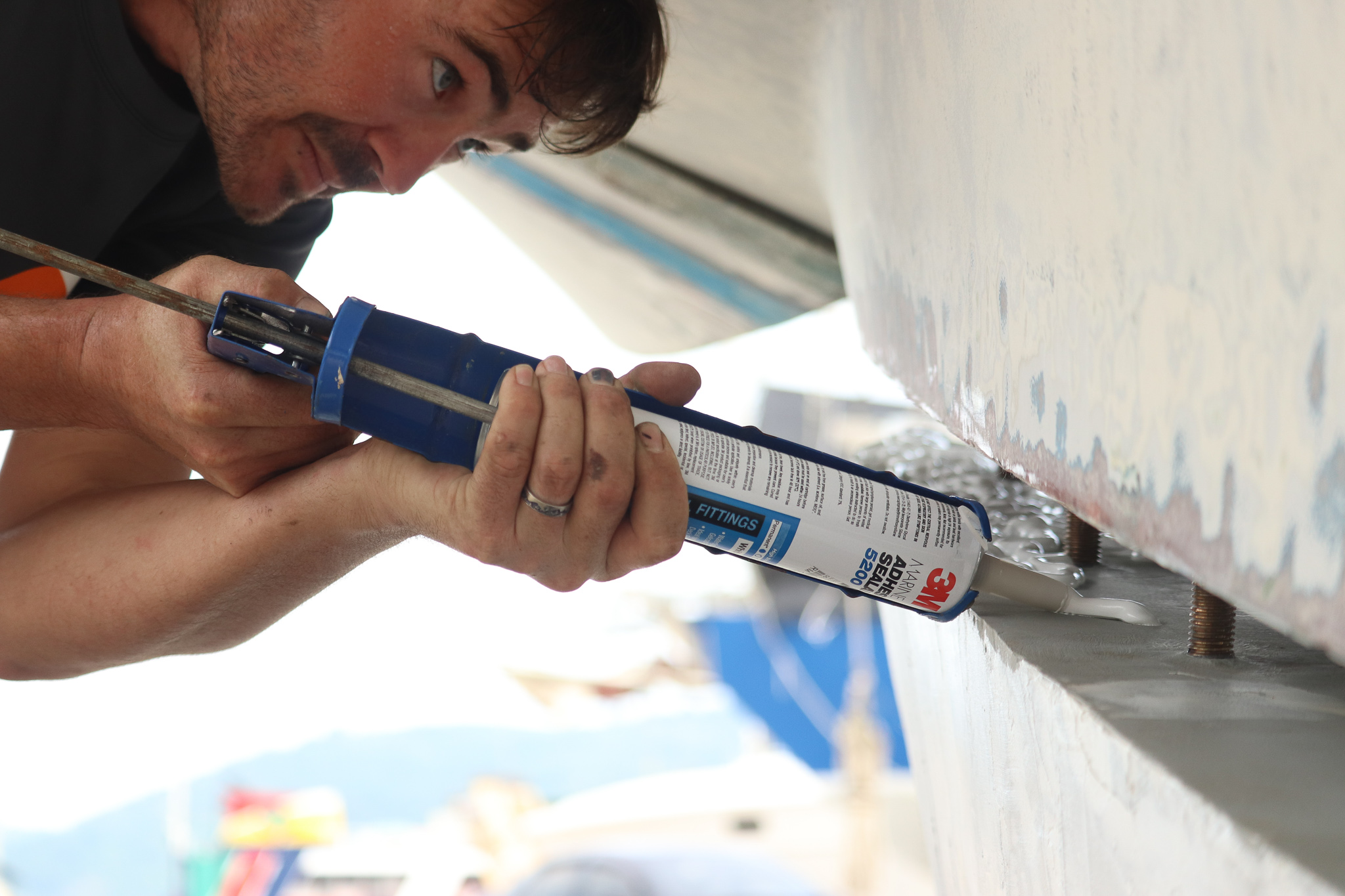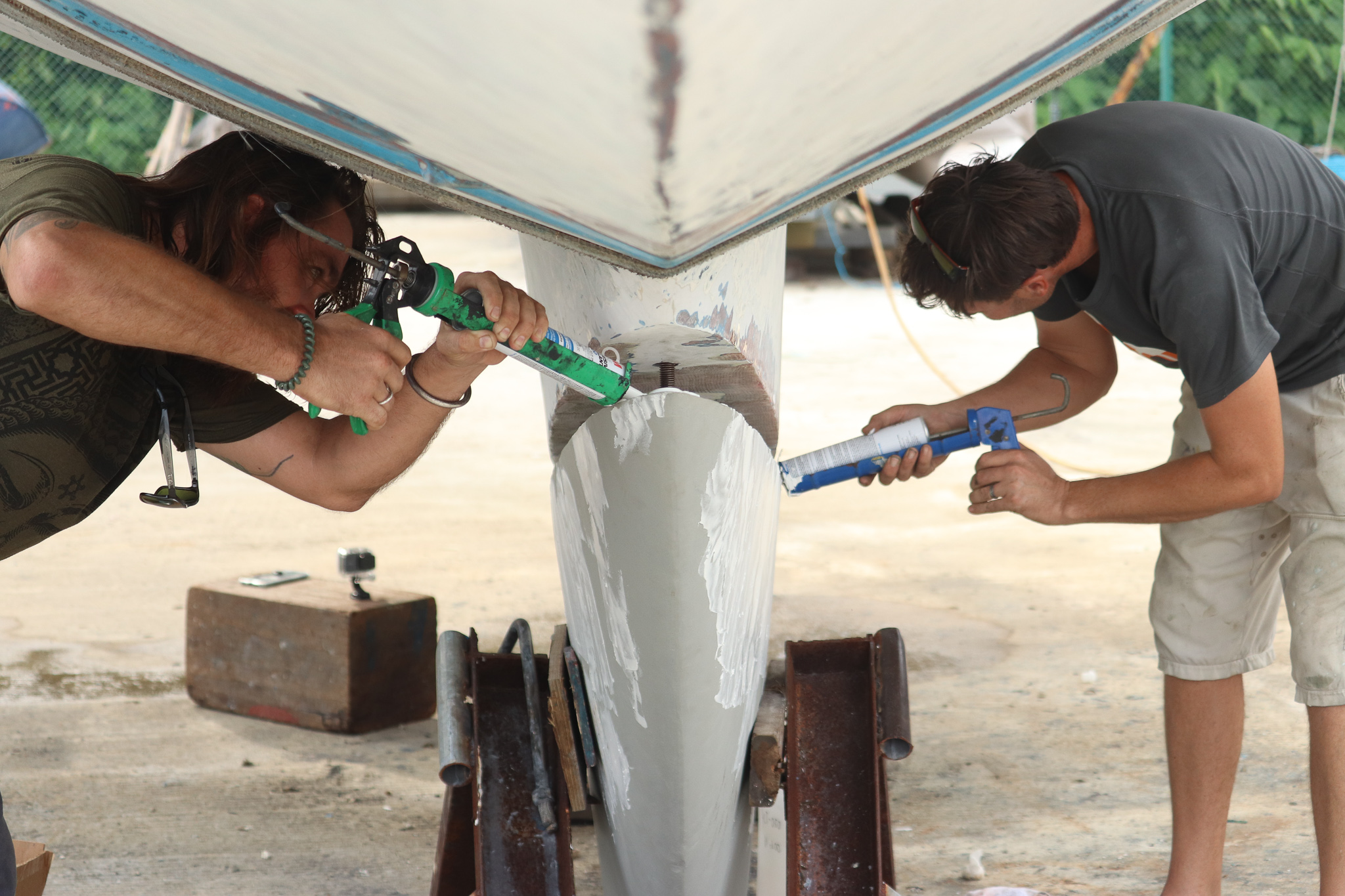Victory Rum!
Happy Fourth of July to everyone in America! I hope you have something fun planned to celebrate our rebellion against the Mother-Land. Rebels and Rabble-Rousers Forever!
***
With my keel + hull snuggled together at least temporarily, everyone breaks for lunch. Andrew flies up my ladder certain that this is another one of those moments that you must pause to thank Neptune for his kindness. Out comes the Ceremonial Sailor Jerry.
“Breaking out the Rum Rations?” Ryan asks.
“The Ceremonial Rum.” Leslie explains.
“Ceremonial Rum? I’ve never heard of such at thing.”
Ryan. Really. And, I trusted you with my life?
Andrew splashes a shot on my keel. Takes a victory swig of his own, hands it to Leslie, who hands it to Ryan and back again. “You guys drink the good stuff!”
I stick my nose into the air. “You wouldn’t offer Neptune just any old swill, now would you?”
**Maybe it bears mentioning that it is never safe to drink on an industrial job. But, if a sailor can’t operate with the smallest ceremonial nip of rum in his belly, he may not be qualified for the job.**
They all sit under my hull, taking refuge from the noon-time tropical sun, replaying the moment of glory again and again.
It’s at this moment that Leslie realizes Andrew still hasn’t eaten a single thing all day, and we aren’t even close to finished yet. “I think I should go pick up some lunch for everyone. Should I go buy 5200 or what?”
There is some mumbling about the merits of 4200 v. 5200, etc. Everyone asks why wouldn’t Andrew be doing 5200 as stated in the design specifications. While it seems like the obvious choice, there is always something to be debated in the boat-repair world.
5200 is an industrial glue sailors use to permanently, and I mean permanently, affix things to their boats. It is unbelievably difficult to get off, and that’s when it’s old, worn out from the sun, and in relatively small quantities. If we are going to use it on the bottom of the keel, there will be seven square feet of glue spread from front to back and across the width of my keel. Calculating the holding strength, that amount of glue would be able to hold more than 20,000 lbs of weight! In other words, if we glue my keel on with 5200, that means it will be very, very, very difficult (maybe impossible without a saw) to get off.
“But Sonrisa,” you might say, “I thought the whole point of this venture was to make sure the keel never has to come off ever again?” And, yes, you would be right. But, how certain are we? How certain are we that we have this whole thing done properly and we will not need to remove it, adjust it, and reattach it again? How would we know? When are you ever confident enough in what you’ve done to permanently affix anything? It’s a nerve-wracking thought.
“7 cans of 5200.” Andrew says.
“You’d better pick up 8,” says Ryan, just in case.
“Yeah.” Everyone agrees, so Leslie is sent off to acquire lunch and the 5200.
Meanwhile, I remember the backing plates. “Hey, Andrew, what about the backing plates?”
Andrew gives a start when he realizes the backing plates are not at all prepared to go. This begins a scramble to get them done before the day closes up and I have to sit over night in the slings with a half-installed keel beneath my belly. The lift driver hoists me back up again, to exposing my keel bolts and the top of the keel where the glue will need to be spread.
Using a very scientific process, Andrew places the new backing plates atop the old backing plates to trace the old bolt holes. Soon, though, Andrew realizes that these bolts may not be in the exact arrangement as the old, what if the holes are off by millimeters? So, instead, he places the new plates atop my bolts and traces the pattern of holes he will use.
Look how disgusting this old backing plate looks! Terrible shape.
Then, over to the yard workshop, where holes are drilled with ever increasing size of drill bits.
The silicon bronze is so strong, it dulls the drill bits and they keep needing to be sharpened.
By the time Leslie returns with packs of glue and lunch, Andrew is famished and ready to gnaw off his own arm. Pizza party under my hull!!!
Finally, everyone is ready for what will (very hopefully) be the final chapter of this keel bolt saga. The audience gathers around to watch Andrew and Yard-Ryan work to spread 5200 all across the keel, just like frosting a cake. Andrew works on one side, while Ryan grouses from the other that his can of 5200 is dried out and won’t work. He cuts another can and starts to catch up. There is some concern that the seven cans will not be enough or that it will all start to set up before we can spread it evenly. But, in the end, they successfully spread 5200 on every last bit of my keel.
It’s 5:30 p.m., and in the fading evening light, everyone is ready to go to put my keel back on my hull (hopefully) one last time, forever. (Please, with your favor, Neptune.) The travel-lift snorts to life, and we work through the machinations to ever so gently lower me down atop my bolts, glue, and keel.
There is a final round of hand shaking, back patting, and then everyone splits apart for the evening. Andrew stays with me, though. He’s too excited to quit just yet. “Let’s get those beautiful backing plates installed, huh, Sonrisa?” I love his enthusiasm.
He nestles the plates into my bilge, atop my bolts. He seals them down with more 5200, slides a washer in place, then swirls the big nut atop all of that. We will need to torque the nuts down to a special tension, but for tonight, we can just enjoy how beautiful I am….
Bling-Bling!


